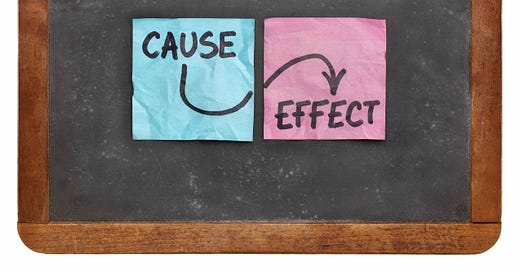Worship Cause and Effect
When I was a child, my family traveled each summer from Oklahoma to Tennessee for a couple of weeks of vacation with grandparents. The twelve hundred mile round-trip on those two-lane roads in the 1960 white station wagon seemed to take forever. The length of the trip was minimized through the anticipation and excitement that grandparents, aunts, uncles, and cousins were waiting expectantly for our arrival. As we turned down the farm road and my grandparents’ house came into view, we could always count on seeing my grandmother sitting in the porch swing waiting and watching for us to arrive. She wasn’t certain when we would get there, so she would have been waiting for hours, looking for us and longing for our arrival.
Worship doesn’t invite God’s presence; it acknowledges it. God has called us out of darkness into his amazing light that we may speak of his wonderful acts (1 Pet 2:9). The Father is looking for those who worship him in spirit and truth (John 4:23). God initiates, and we respond.
Cause and effect is a relationship in which a person, action, or thing makes another event, action, or thing occur. A cause must always precede an effect in order for that effect to occur. So, the effect is then a consequence of the cause. A model for this cause and effect worship understanding is found in Isaiah 6:1-8. The holiness of God is revealed to the prophet Isaiah (cause), and his natural worship response is contrition (effect), “Mourn for me; I’m ruined!” (Isa 6:5). God revealed his mercy (cause), and Isaiah’s worship response is service (effect), “I’m here; send me” (Isa 6:8). If our worship responses are the effect, then it is not possible for those worship actions to also be the cause.
What we sing or how we sing it can’t cause a response because it is the response. God’s revelation can’t be generated by the effect since the effect is a response to the cause. As good as our various worship actions are, they still can’t cause worship to occur, because those worship actions are the effect. Our worship actions may prompt, remind, exhort, prod, or encourage more effect, but they can’t cause cause. So, we can celebrate the cause, but we can’t create it.[1]
[1] This article is adapted from David W. Manner, Better Sundays Begin on Monday: 52 Exercises for Evaluating Weekly Worship (Nashville: Abingdon Press, 2020).




